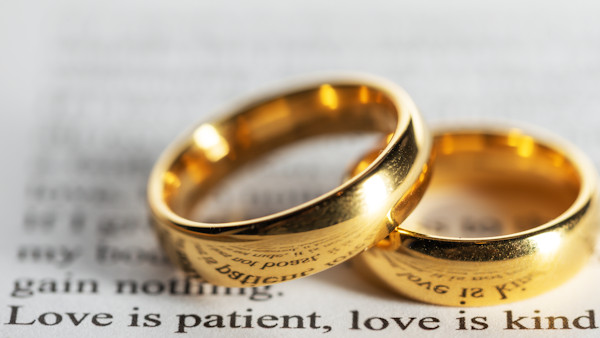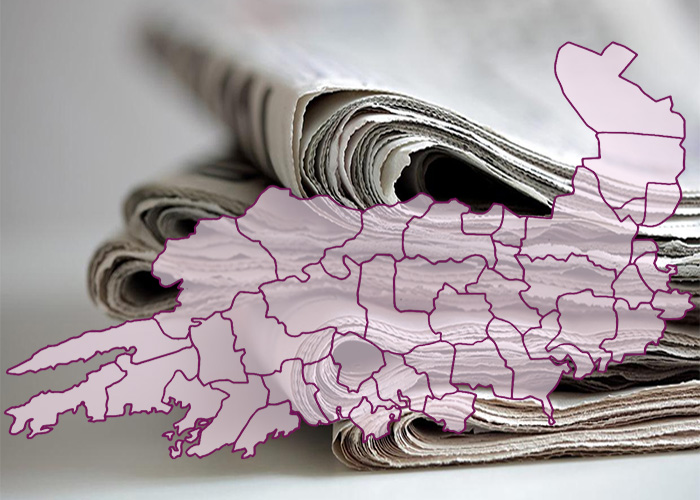Planning The Ceremony
The pre-marriage course will not deal directly with all the issues involved in preparing the ceremony. This is best done with the priest or deacon who will be officiating at your wedding. This text is designed to act as a guide to the central issues and it also outlines what paperwork is required by the Catholic Church and by the State.
Make It Yours
There are several ways in which you can create a special atmosphere for your marriage ceremony. The overall structure of the ceremony has options; there is a rich array of appropriate music and hymns; you can compose particular prayers which express your needs or you can use ones which are preprinted in the authorised texts; and there are several formats for exchanging marriage vows. You may not want to be original with every aspect of the ceremony but you can personalise it so that it will reflect you as a couple and your faith journey.
Most couples will have contact with a number of priests in the preparation of your marriage (see also “Pre-marriage Papers” ). The priest whom you choose to officiate at the ceremony will have a central role in planning the ceremony with you. It is advisable that you make contact with him at least three months in advance and prior to making any other arrangements that affect the ceremony - such as printing booklets. Having made this journey with many others he will also be able to offer advice and assistance.

Format
While most couples will want to celebrate the Sacrament of Marriage in the context of the Eucharist, some couples may deem it appropriate for them to celebrate their marriage without Mass. In this case, a Liturgy of the Word is planned along with the Rite of Marriage. This option offers the same opportunities for involvement in the ceremony as a ceremony with Mass. This option may be especially appropriate for couples of mixed religion. Consult your priest for full details.
[An overview of all the options available and about which choices need to be made in consultation with your celebrant can be viewed and/or downloaded The Wedding Ceremony Planner.]
Scripture Readings and Prayers
The part of the wedding ceremony which includes readings from the bible is one of the places where participation by your family and friends may be appropriate. A few points are worth noting:
- It is best to select readers who have read in church before. Others will be under pressure and probably will require more preparation so that they may do justice to the reading.
- There are usually four scripture texts: two readings which can be read by people of your choosing, a psalm which may be sung or recited, and a gospel which is read by the priest or deacon. Choose your scripture texts in consultation with the officiating priest or deacon. [References to a selection of suitable readings are given here. You need to ensure that the version of the readings you use is either the Jerusalem Bible or the Revised Standard Version.]
- The Prayer of the Faithful is comprised of short intercessions and may be appropriate to family members and relations whom you wish to include in the ceremony. You are also welcome to compose your own prayers of intercession - for deceased family members, for people who have made a special contribution to your lives, for absent friends, etc.
- If there is another text from somewhere other than the bible which you would like included in the ceremony, it may be more appropriate to have it as a reflection after Communion.
Music
The music and hymns you choose for your ceremony will say a lot: to the guests, about whether they sit and watch or actively participate in the ceremony; to the atmosphere, whether it’s to be prayerful and engaging or fragmented and distant. A wide variety of appropriate material has been published. Choose a singer/musician who is familiar with these and with the guidelines of the Irish Bishops’ Conference. Many churches have organists and cantors who will be available to you by arrangement with them.
Choose music which will be appropriately part of your ceremony and will complement it rather than compete with it. A wide variety of appropriate Church Music in print and tape/CD is available.
Floral Arrangements
Many churches have altar societies who will be happy to assist you. Ask one of the priests or the sacristan about the local practice - it varies from place to place. Florists whom you may contract should ask about local practices before doing their work. If there is another wedding on the same day, enquire whether the other couple may wish to share the flowers and cost. Please note that floral displays should not conflict with the liturgical season. Extravagant displays may be inappropriate at any time but are especially out of place during the season of Lent (Ash Wednesday to Holy Thursday).
Candles
The ritual involving the lighting of three candles is an option. If you wish to include it in your ceremony, check with the priest whether you need to provide candles and a candelabra. If you purchase your own wedding candle it could be lit in your home annually on your anniversary. (Ensure that someone collects it from the church after the ceremony!)
Rings and Coin
The wedding rings are a sign of your commitment to one another and a reminder of the Lord’s unending love. They are blessed as part of the ceremony before you place them on one another’s fingers.
The Rite also provides for the exchange of suitable gifts or coins as a symbol of your commitment to complete sharing. You may use small gifts which are known only to the couple. Traditionally, a coin was used and was given by the groom to the bride. It is now considered more appropriate to have two coins and to have a two-way exchange.
Lights, Camera
Professional photographers and videographers are able to ensure they capture well lit images without intruding on the ceremony with movement or additional flash light.
They’ll know where to place themselves so that they capture strong images without themselves becoming a feature.
The less movement they need to do during the ceremony the better. If they are not familiar with the church where you are getting married, ask them to attend the rehearsal with you.
Ushers
Many of the people whom you invite to your marriage ceremony will be unfamiliar with the particular church. Some will tend to remain at the back. It is worth asking a couple of people nominated by you to act as ushers in the church. These would simply welcome people and encourage them to come to the front of the church as they arrive and so create an intimate atmosphere for your special celebration rather than having people scattered around the church. They could also distribute ‘button holes’, booklets, etc, to people.
Booklets
Printed Mass booklets are not a necessary part of the ceremony. Their only possible use is to enhance the participation of the people. If you choose hymns which the congregation can sing, it may help if they have the words in a leaflet or booklet. However, if all the singing is by a soloist, there’s no point in printing the words. Similarly, a booklet which has every spoken word of the ceremony in it can be a distraction.
Plan your ceremony first in conjunction with the officiating priest, then decide if a booklet will enhance it or detract from it. Don’t copy somebody else’s booklet - you may end up copying their mistakes too! Your priest will help and advise.
Altar Servers
You are not obliged to have altar servers at your ceremony. However, their presence is a visible reminder that your marriage is not private, that it involves the whole parish community which the young people also serve. You may have young relatives who would like to serve at the ceremony. Otherwise, check with the church about local arrangements.
Papal Blessing
Some couples like to have their special day enrolled for prayers by the Holy Father at the Vatican. It is also a reminder that your marriage concerns the entire Christian family.
Further information and application form
Signing of Civil Registration Form
Each couple needs to receive the Marriage Registration Form from the local registrar of marriages. After you have exchanged your consent and the formal ceremony is complete, you will be asked to sign the registration form which you will be given to take to the local registrar of marriages. The priest and your witnesses also sign this form. Most couples prefer to sign it in the sacristy but it may also be signed in the main body of the church. (It is inappropriate to use the altar for this purpose since this is reserved for the Eucharist, but a separate smaller table may be used.) It is the couple’s legal responsibility to ensure that the marriage is registered with the civil authorities within one month of the wedding taking place. The priest registers the marriage in the local parish register and notifies the church(es) of baptism of the fact that you got married.
Offerings
Some churches have set fees which you are required to pay for the use of the church on your wedding day. Most parish churches do not have a fee for the use of the church but a voluntary donation towards the upkeep of the church is appreciated.
It is also customary to provide an offering for the sacristan at the church, and altar servers. (Most sacristans are not paid to work afternoons. If they set up the church for your wedding, a gratuity is appreciated. How much? Usually €20 is adequate.) The offering for the priest is part of his annual income. Most priests spend significant time with you in completing papers, discussing the ceremony, doing the rehearsal and officiating at your ceremony on the day. On average, this may amount to 12 hours of work. He will also do background preparation to help ensure that all that you require, what the church requires and what the state requires are in order for your marriage. Your offering should reflect your means. It should also reflect what the other professional services you use on the day will cost. (How much? The minimum recommended is €120.)
Guidelines for paying the church organist were provided by the National Liturgy Centre in 2002. The relevant extract reads: “The minimum suggested fee is €100, but should be higher when the musician is required for a rehearsal or when music has to be purchased or learned. It is well established practice that where a church professionally employs an organist, he/she is normally entitled to receive a ‘displacement’ fee when the marriage couple wish to use an organist of their own choice.”
Rehearsal
A meeting with the officiating priest or deacon in the church a few days beforehand can help put people at ease. Its primary value is for the couple as it helps to clarify the sequence of events and to outline what happens and where in the church. It may also be appropriate for readers and others to practise their particular contribution to the ceremony.
Time
Prompt arrival at the church shows respect for your partner, the ceremony, your guests, and others who wish to use the church later. Being late also puts a strained atmosphere on your ceremony. Please be on time.

